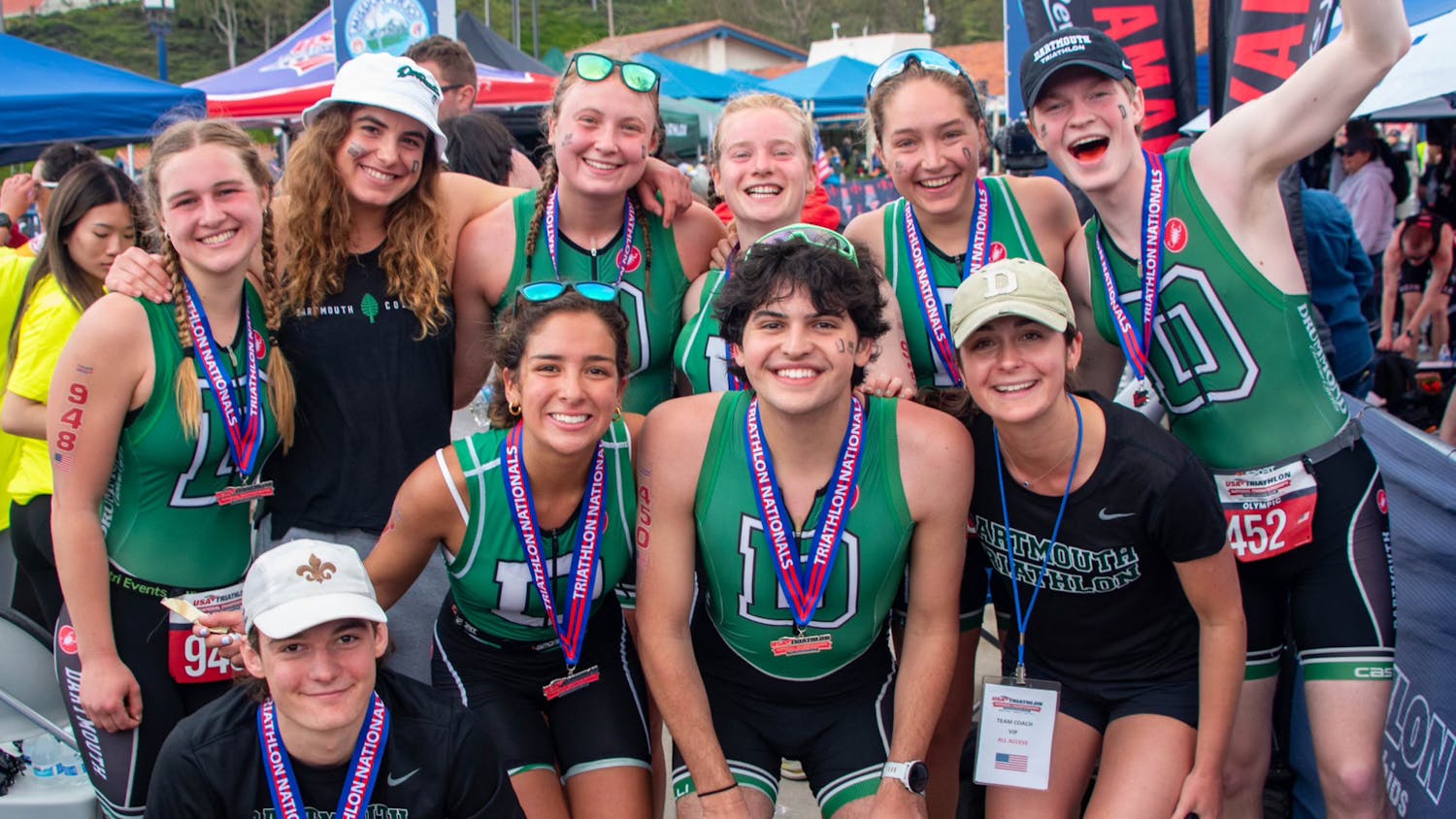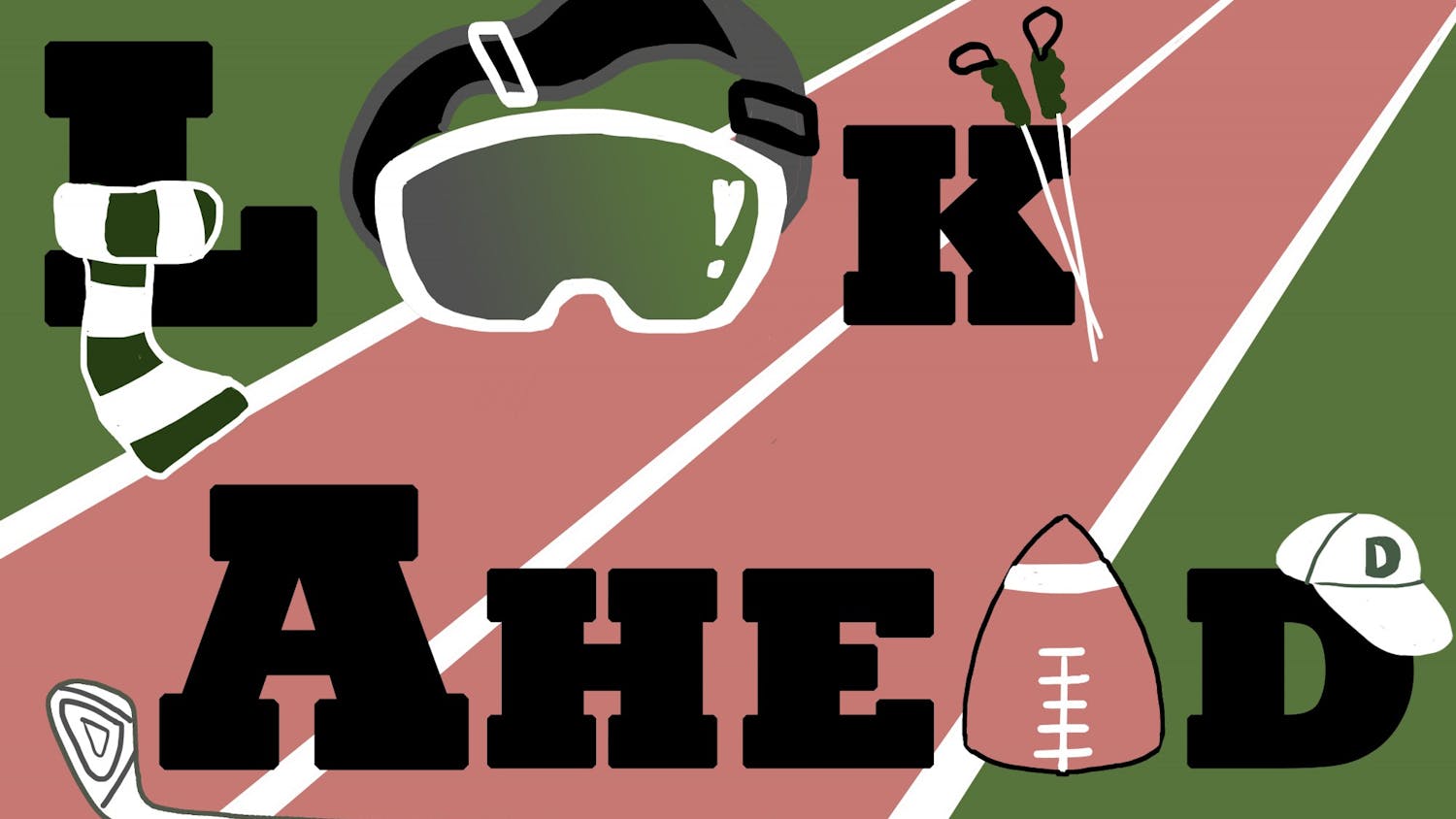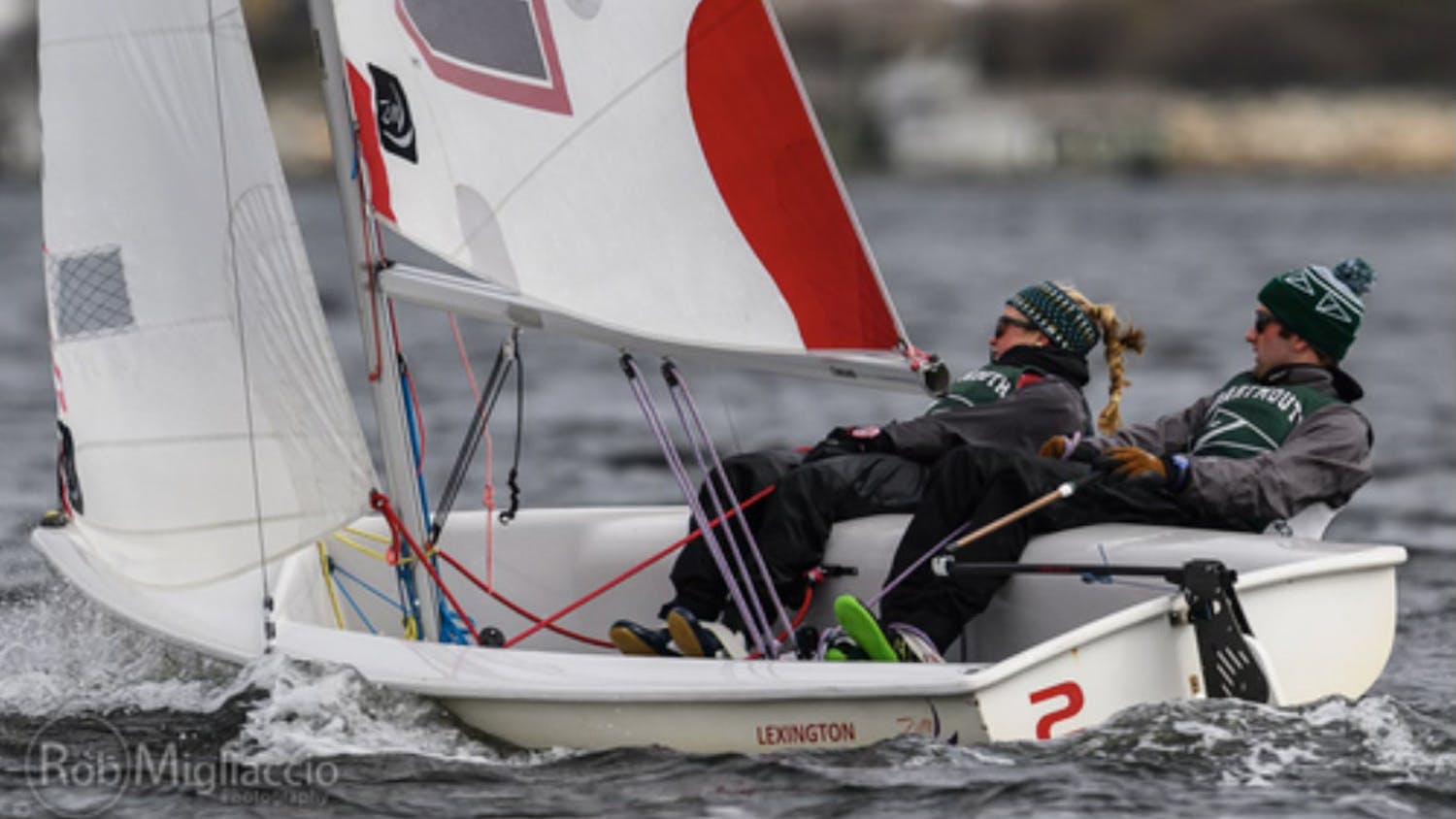[slideshow_deploy id='122285']
Since shortstop Katie McEachern ’16 arrived in Hanover in 2012, she has been the big bat in the Dartmouth lineup. Now, the two-time Ivy League Player of the Year must come to grips with a future in which her playing days are numbered.
She pauses, and then a smile breaks out, admitting, “Maybe I’m in denial a little bit.”
After a senior season in which she batted .442 and became the Big Green’s all-time leader in home runs (40), hits (203), RBIs (129) and batting average (.380), McEachern will travel to Sweden to play out the summer with a club team. It will be the swan song of her career as a player.
McEachern’s path is one of many that Dartmouth’s senior standouts will continue on.
Some will follow potential professional careers, including Laura Stacey ’16 who is pursuing one in hockey. A star forward and captain for the College’s team, Stacey played with Canada’s National Women’s Development Team in the 2016 Nations Cup, where she was named the team’s most valuable player.
Instead of joining a similar workforce to her classmates next year, she will play and train full-time in a bid to compete at the 2018 Winter Olympics.
Although she is looking forward to this opportunity to continue playing, Stacey believes her future as a full-time hockey player is limited because of the difficulty to pursue a lasting career in female sports.
Once her time as a hockey player ends, Stacey said the athletic side of her will be dampened a little bit in favor of other pursuits like a new career and starting a family.
At a college where one-quarter of the student body competes on a varsity team, it can feel natural to categorize people as athletes and non-athletes. For four years, seniors like McEachern and Stacey have borne the “athlete” label.
“As hard as any athlete tries not to, you’re so consumed by the sport that it’s impossible not to get that label, for better or for worse,” first baseman Joe Purritano ’16 said. “You do your best to branch out but [your sport] gives you sort of a label that marks who you are.”
For Purritano, that label evolved last year when the Cincinnati Reds selected him in the 30th round. A professional career became a viable option, but he chose to stay at Dartmouth and compete in his fourth year, helping the Big Green to a second-place finish in the Rolfe Division.
Now that many athletes’ careers are coming to a close, each senior’s decision will shape that label and his or her own identity as an athlete.
For rugby co-captain Yeja Dunn ’16, that identity is heavily intertwined with her sport.
“I don’t think I could separate myself from rugby,” she said.
Despite not knowing how to play the sport when she came to college, Dunn has become a force to be reckoned with on the pitch.
Dunn played a significant role in helping the women’s club rugby team gain varsity status here in 2015. In its first season this past fall, Dunn lead the team to an Ivy League Championship over Brown University.
Perhaps because of her beginning, Dunn has taken a come-what-may attitude to her rugby career beyond Dartmouth. Earlier this year, the Women’s Eagles, the United States national rugby team, selected Dunn as one of 49 players for its player pool and the chance to play in the 2017 World Cup.
If selected, Dunn said she would be thrilled, but that she would also be satisfied with finding and playing for a good club team where she can have fun playing the sport she loves and make new connections.
“Playing rugby is something that just happened, and so as long as rugby is involved in my future, I am okay with going anywhere it goes,” she said.
Goalkeeper Stefan Cleveland ’16, the 2015 Ivy League Defensive Player of the Year, will actually remain a collegiate athlete next year as he pursues an MBA at the University of Louisville. Following a successful season in the more competitive Atlantic Coast Conference, he hopes to play professionally or work in business using his bachelor’s degree from Thayer School of Engineering.
“I like to think I’m not just an athlete,” he said. “But at the same time, I could very well see myself staying within the game of soccer or coaching because I love the game so much.”
Similar to his senior varsity classmates, Cleveland believes playing his sport has changed who he is.
“Without the setbacks in soccer, I would get much more held up on larger setbacks in life,” he said.
Purritano also feels baseball has kept him grounded.
“Baseball has made me a very even-keeled person,” he said. “No situation becomes too big, no moment becomes too grandiose.”
If McEachern had never played softball, she said she would be more insecure or care a lot more about what other people think.
“I think I still have those parts of me, but softball has definitely helped me overcome them in a way,” she said.
For her part, McEachern plans to be an assistant softball coach while attending business school.
“[Softball] is something that I love and it is a large part of who I am,” she said. “[People] always tell you to follow your passion and follow what you love and care about, and I’ve taken that to heart — why would I change that?”



